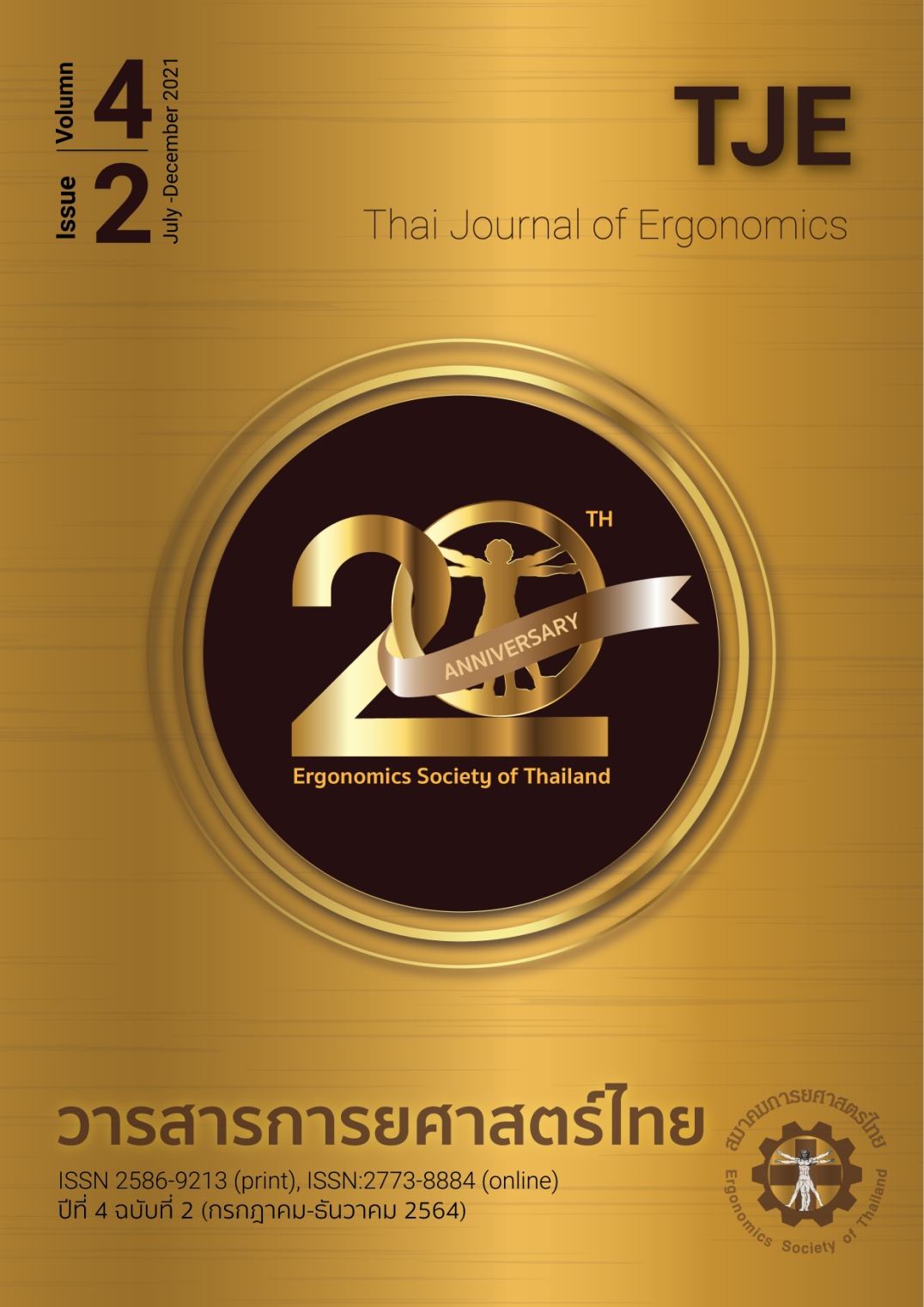The review of habit-forming theories and tools for well-being
Main Article Content
Abstract
Many tools were designed to develop a good habit for learning, well-being or safety habit. Nevertheless, interventions on the tool fail to take habitual behaviour into account, limiting their potential impact. This failure is that many habit tools cannot make behaviour repeatedly until creating automaticity. The study is a review of the theories and tools that used to change the habit. Dual Process Theory, modern habit theory, and Goal Setting Theory, which together model how users form and break habits, to drive effective digital interventions. The analysis of variables used in most theories are shown. We identify opportunities and challenges in designing tools that support habit changing.
Article Details
References
Hill RH. Make safety a habit! J Chem Health Saf. 2018;25:12–7.
Pinder C, Vermeulen J, Cowan BR, Beale R. Digital behaviour change interventions to break and form habits. ACM Trans Comput Interact. 2018;25:15 doi: 10.1145/3196830
Stojanovic M, Grund A, Fries S. App-based habit building reduces motivational impairments during studying – an event sampling study. Front Psychol. 2020;11:167. doi: 10.3389/fpsyg.2020.00167
Stawarz K, Cox AL, Blandford A. Beyond self-tracking and reminders: designing smartphone apps that support habit formation. In: Proceedings of the 33rd Annual ACM Conference on Human Factors in Computing Systems; 2015 April 18-23; Seoul: Korea. New York: Association for Computing Machinery; 2015. p. 2653–62.
Stawarz K, Gardner B, Cox A, Blandford A. What influences the selection of contextual cues when starting a new routine behaviour? An exploratory study. BMC Psychol. 2020;8:29. doi: 10.1186/s40359-020-0394-9
Orbell S, Verplanken B. The automatic component of habit in health behavior: Habit as cue-contingent automaticity. Health Psychol. 2010;29:374-83.
Strack F, Deutsch R. Reflective and impulsive determinants of social behavior. Pers Soc Psychol Rev. 2004;8:220–47. doi: 10.1207/s15327957pspr0803_1
Skinner BF. The behavior of organisms: An experimental analysis. New York: Appleton-Century-Crofts; 1938.
Duhigg C. The power of habit: Why we do what we do in life and business. New York: Random House Trade Paperback; 2012.
Heffernan CJ. Social foundations of thought and action: A social cognitive theory. New Jersey: Prentice Hall Inc.; 1986.
Ajzen I. The theory of planned behavior. Organ Behav Hum Decis Process. 1991;50:179–211.
Dumitrescu AL, Wagle M, Dogaru BC, Manolescu B. Modeling the theory of planned behavior for intention to improve oral health behaviors: the impact of attitudes, knowledge, and current behavior. J Oral Sci. 2011;53:369–77.
Locke EA, Latham GP. Building a practically useful theory of goal setting and task motivation: A 35-year odyssey. Am Psychol 2002;57:705-17.
Fogg BJ. Persuasive Technology: Using Computers to Change What We Think and Do. San Francisco: Morgan Kaufmann; 2002.
Sinek S. Leaders eat last: Why some teams pull together and others don’t. New York: Penguin Random House LLC; 2014.
Brown PC. Make it stick: The science of successful learning. Canbridge: Harvard University Press; 2014.
Nabavi RT. Bandura’s social learning theory & social cognitive learning theory. J Pers Soc Psychol. 2012;1:589.
Aarts H, Dijksterhuis A. Habits as knowledge structures: Automaticity in goal-directed behavior. J Pers Soc Psychol. 2000;78:53–63.
Verplanken B, Faes S. Good intentions, bad habits, and effects of forming implementation intentions on healthy eating. Eur J Soc Psychol. 1999;29:591–604.
Fogg BJ. The Behavior Grid: 35 Ways Behavior Can Change. In: Proceedings of the 4th International Conference on Persuasive Technology. 2009 April 26-29; Clare: USA. New York: Association for Computing Machinery; 2009. p. 1-5.
Dfarhud D, Malmir M, Khanahmadi M. Happiness & Health: The Biological Factors- Systematic Review Article. Iran J Public Health. 2014 Nov;43:1468–77.
White NM. Reward or reinforcement: What’s the difference? Neurosci Biobehav Rev. 1989;13:181–6.
GoalLLC. Goal & habit tracker + smart goal setting app [Internet]. [cited 2021 Nov 10]. Available from: https://www.stridesapp.com/
Inc. H. Gamify your life [Internet]. [cited 2021 Nov 10]. Available from: https://habitica.com/
Bickston L. A Social habit tracker to keep you accountable [Internet]. HabitShare. 2021 [cited 2021 Dec 7]. Available from: https://habitshareapp.com/
Group BT. Change your habits and life with pavlok [Internet]. [cited 2021 Dec 7]. Available from: https://pavlok.com/
Laird A. Meet Moti, your smart companion and life coach [Internet]. [cited 2021 Dec 7]. Available from: https://mashable.com/article/moti-robot#Z_ebsvlP0Eqs


